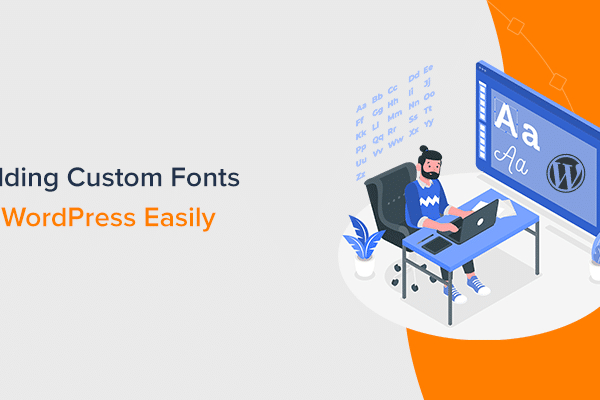When pitting Wix vs Shopify, it’s important to focus on your individual needs and what’s best for the project you’re working on. In certain scenarios, one platform will be a clear winner over the other, but things are not that simple for every scenario and every user. Most of the time, you’ll need a deeper look to make a good decision between these two.
Wix and Shopify both have popularity in the ranks of eCommerce platforms and website builders. What’s great about them is that you’re able to construct beautiful stores and blogs without touching a line of code, yet, both still offer modules for introducing custom HTML, CSS, and integrations for advanced users.
In this in-depth comparison, we examine Wix vs Shopify in several areas, talking about advantages and downsides, along with the features and pricing options that make each appealing. Lastly, we show you when picking one platform over the other will be a good idea. Here’s what’s to come:
? Table of contents:

Wix vs Shopify: An introduction to both platforms
Wix is a do-it-yourself (DIY) website builder where business owners have the tools to create their own designs.
It’s still possible for developers to make more intricate, complicated websites, but the original idea behind Wix was to cut out the developer component.
Wix users pay monthly subscriptions for an all-in-one website package, with hosting, domain name, and themes all combined into one builder. It also offers eCommerce capabilities for selling items. Wix wasn’t initially made for eCommerce, but they’ve done a wonderful job of expanding into this realm.
Overall, everything from customer support to hosting, and online sales to content creation, is supported by the Wix subscription.
Shopify focuses primarily on eCommerce.
The platform provides a similar payment structure as Wix, offering a full website and eCommerce system for a monthly fee. These websites are meant to sell products. Shopify’s strong suit isn’t in the content creation area. Yes, it’s fairly easy to launch a website, but you wouldn’t run a blog or regular business page on Shopify if you were not planning on building an eCommerce store alongside.
Much like Wix, Shopify offers exemplary customer support, apps, themes, and a decent builder.
The primary difference is how Shopify caters to online stores first, and then offers a few blogging and content creation options as a side thing. On the other hand, Wix is perfect for those interested in simple web design and content creation – with some eCommerce modules included if needed.
| Tool | Features | Pricing | UI and Design | eCommerce Functionality | SEO and Marketing |
|---|---|---|---|---|---|
| Wix | ⭐⭐⭐⭐⭐ | ⭐⭐⭐⭐⭐ | ⭐⭐⭐⭐ | ⭐⭐⭐ | ⭐⭐⭐ |
| Shopify | ⭐⭐⭐⭐ | ⭐⭐⭐⭐ | ⭐⭐⭐⭐⭐ | ⭐⭐⭐⭐⭐ | ⭐⭐⭐⭐ |
Wix vs Shopify: Features
You can find features like templates, page builders, and media galleries in both Wix and Shopify. In fact, their feature sets are fairly similar but organized in different ways.
Wix features
The Wix feature list is rather long, but we’ll outline the standard features that everyone should expect from a website builder and go into the unique features that make Wix stand out from the competition.
- Over 500 premade templates categorized for areas like business, online stores, and creative websites. The library grows on a regular basis and provides beautiful, modern designs for specific categories like cosmetics, technology, and law.
- A drag-and-drop page builder that offers total design freedom and dozens of modules for inserting and moving elements like photos, text boxes, and buttons.
- An app market to locate extensions.
- Unique design effects for things such as fonts, scroll effects, and video backgrounds.
- Simple and advanced media galleries that display videos and images.
- A module called Corvid, which empowers developers to build advanced web applications for their web projects.
- All the essential online components for running a business, like a custom domain name, email addresses, free hosting, and analytics.
- Social media tools for linking to your accounts and showing feeds from places like Facebook and Twitter.
- SSL certificates to protect your online stores.
- Wix chatting features to discuss questions with your site visitors.
- Tools to construct a full storefront and manage orders and inventory.
- Multiple payment methods such as PayPal and credit cards.
- Shipping and tax calculators and regional and worldwide sales.
- Coupons and discounts for everything from holiday discounts to free shipping for buying a certain amount of product.
- A booking module with settings for a Google Calendar sync and auto-email reminders.
- Excellent content creation tools for creating blog posts and managing the writing and distribution of that blog.
- Music, video, and photography support to secure your artwork and easily upload them at full quality.
- Promotional options for getting subscribers, sending out emails, and posting to social media.
- A mobile app to manage your site.
Shopify features
Shopify relies quite a bit on apps to ensure online stores are able to scale up in a reasonable manner. It’s somewhat lacking in content creation and management functionality, but the eCommerce features offer incredible benefits for those interested in selling online. The list below covers all aspects of website design, but you’ll notice the vast majority of the items concentrate on eCommerce.
- Over 70 professionally designed themes with full online stores. The library displays themes by collections and industries such as minimalist themes, food and drink, and photography.
- Analytics with links to Google Analytics, product reports, and referral statements.
- A visual builder with some drag-and-drop elements, but it’s not that versatile.
- An app store to locate extensions for accounting, marketing, and more.
- SSL certificates, hosting, and security all packaged into your subscription.
- Support for multiple images and videos on product pages and regular pages.
- Digital and physical product options with inventory management.
- Advanced product variations to offer things like multiple sizes and colors.
- Marketing features that help with discounts, reviews, and SEO.
- Social media connections to link your social pages, gain followers, and display feeds.
- A large collection of store management settings and tools, ranging from customer accounts to dropshipping, and customer groups to refunds.
- An incredible, all-in-one shopping cart that supports over 100 payment gateways and flexible shipping rates.
- Options for developers to add custom CSS and HTML.
- A blogging platform with limited formatting and customization options.
- A mobile app to manage your store.
Winner: Wix
This is a tough one because Wix and Shopify each have respectable features and they both center around varying types of websites. Shopify definitely offers superior eCommerce features, but Wix isn’t a bad option for running an online store. Wix is a more well-rounded solution when it comes to features, since it includes valuable content management and eCommerce features, whereas Shopify lacks in the content management area yet leads the industry in eCommerce platforms.
Wix vs Shopify: Pricing
As a DIY builder, Wix has consistently been a low-cost leader for small businesses to launch websites without much upfront capital. Shopify provides a few lower-cost plans, but nothing like Wix. However, Wix starts to get as expensive as Shopify when you start adding eCommerce tools, which makes them more comparable.
Wix pricing
Wix pricing is divided into two categories, Website Plans and Business and eCommerce plans.
Let’s begin with the Website Plans:
- Free – Receive a simple website with an assigned URL and ads served up by Wix. It’s an option for hobbyists and very small businesses, allowing for up to 500MB of storage and bandwidth.
- Combo – $13 per month for a custom domain website, free domain, removal of Wix ads, and expanding storage space.
- Unlimited – $17 per month for everything in the previous plan, expanded storage space, ad vouchers, a site booster app, and visitor analytics.
- Pro – $22 per month for all elements of previous plans, more storage, an events calendar, professional logo, and social media logo files.
- VIP – $39 per month for everything in the previous plans plus maximum storage, video hours, and priority customer support. The other plans lack priority support.
And the Business and eCommerce Plans:
- Business Basic – $23 per month for secure online payments, recurring payments, custom accounts, custom domains, free domains, no Wix ads, unlimited products, abandoned cart recovery, and selling on social channels.
- Business Unlimited – $27 per month for everything in the previous plan, more storage, subscriptions, multiple currencies, automated sales tax, advanced shipping, shipping discounts, marketplace selling, dropshipping, and product reviews.
- Business VIP – $49 per month for everything in the previous plans, more storage, customized reports, and a loyalty program.
- Enterprise – Custom pricing for an entirely custom store.
Shopify pricing
Shopify pricing is a little more straightforward since you don’t have to think about standard website plans, only eCommerce packages.
- Shopify Lite – $9 per month to place Buy buttons on previously created blogs and websites. Add products and accept card payments. This is not a full online store with a shopping cart!
- Basic Shopify – $29 per month for a full online store, unlimited products, sales channels, order creation, discount codes, SSL certificate, abandoned cart recovery, and gift cards.
- Shopify – $79 per month for everything in the previous plans, more staff accounts, professional reports, USPS Priority pricing, and better rates across the board.
- Advanced Shopify – $299 per month for everything in the previous plans, more accounts, better discounts, an advanced report builder, and third-party calculated shipping rates.
- Shopify Plus – The enterprise plan with custom pricing and features.
Lastly, shipping and credit card processing rates decrease as you upgrade your Shopify plans.
Winner: Wix
Wix offers a free plan for making basic, ad-supported websites. Not to mention, it has several inexpensive plans to produce standard sites without any eCommerce functionality. Shopify doesn’t provide either of those opportunities.
However, Shopify is a better value once you begin building an online store, since the features are stronger for that purpose. However, to launch a standard online store, the Wix Business Basic and Business Unlimited plans are still cheaper than Shopify’s lowest online store package.
Wix vs Shopify: User Interface and design
For the user interface, we evaluate how fluid it is to walk through the dashboard, locate settings, and if any guides provide assistance along the way. The design aspect involves themes and how the websites actually look after implementation.
Wix user interface and design
Wix allows for the launch of a website within a matter of minutes. The setup area asks for what type of website you want to design and offers hundreds of themes to choose from. You can also fill in several questions and have the Wix ADI create a look for you.

The website designer features a drag-and-drop visual configuration where you swap out modules with a click or two. The menu also allows for a streamlined creation process, offering tabs for media, design elements, and blocks.

I’ve typically found that Wix runs smoothly, but the real-time editor occasionally freezes or lags. The eCommerce builder works well, but it’s included in a separate area, making for a slightly confusing interface.
Shopify user interface and design
The Shopify designs are cleaner and more modern than Wix’s themes. They’re also focused more on selling online and catering to specific industries. Therefore, you can find a clothing store theme or something for electronics and typically leave the design as is after uploading your logo.

The downsides include the fact that Shopify doesn’t work well for regular websites without stores. In addition, Wix has more themes to choose from. We would also prefer a drag-and-drop builder, even though the Shopify visual builder usually does the trick.
The dashboard presents a beautiful user interface, filled with implementation tips and steps, while also compiling a sleek menu to find the right settings. Finally, the search bar allows you to type in any keyword and go to the dashboard page of your choice.

Winner: Shopify
The Shopify themes provide a more professional, modern look, while the dashboard is meant for functionality and simplicity. It has a consolidated menu, a clean appearance, and a search bar that can’t be beaten by Wix.
Wix vs Shopify: eCommerce functionality
There’s no question Shopify has Wix beat on this one, but it’s still worth mentioning that Wix has improved its eCommerce tools quite a bit over the years. It’s a respectable solution for adding a fully functional online store.
Wix eCommerce functionality
The basic eCommerce features from Wix include storefront themes, a store manager, and product pages. Most Wix plans allow for unlimited products, but the cheaper ones give companies uncomplicated payment collection tools and SSL certificates.

A few payment methods integrate with Wix, but not nearly as many as the hundreds from Shopify. The coupons and discounts are nice to see, considering not all eCommerce platforms have those for cheaper plans. You can also incorporate worldwide shipping, tax calculations, and shipping discounts into the mix, making for a somewhat watered down, but useful, online store builder for small shops.

Shopify eCommerce functionality
Shopify is the powerhouse in the DIY eCommerce site business! At its most basic, Shopify delivers tools for orders, products, and customer management.

You can look through advanced analytics and launch marketing campaigns through email and social media.
Discounts come with your plan, along with several sales channels like Facebook Shops and eBay.

I also enjoy that most of the apps are designed to function only with eCommerce stores, so you receive a wide variety of add-ons for shipping, accounting, and sourcing.
Winner: Shopify
Everything from Shopify is designed for eCommerce, so again, it’s no surprise that it beats out Wix in almost every area!
Wix vs Shopify: SEO and marketing
Our final category for comparison puts together the essentials for promoting your store, whether that’s email marketing, social media, or SEO.
Wix SEO and marketing
For SEO, Wix lacks any advanced functionality. However, several apps are available for installation. The marketing is a different story, seeing as how you can launch a powerful email marketing campaign with beautiful templates. Wix also provides decent social media tools, visitor analytics, and more in the app store.

Shopify SEO and marketing
Everything SEO and marketing -related for Shopify can be extended with the app store. When talking about built-in features, Shopify helps with optimizing every page of your site and launching marketing and ad campaigns through social media and email.

Automations are a huge part of the Shopify ecosystem, as it provides all the brand engagement you need.
Winner: Shopify
It’s a close one with SEO, but the eCommerce marketing tools from Shopify stand out compared to Wix.
Final conclusion on Wix vs Shopify
Here’s that quick comparison table again:
| Tool | Features | Pricing | UI and Design | eCommerce Functionality | SEO and Marketing |
|---|---|---|---|---|---|
| Wix | ⭐⭐⭐⭐⭐ | ⭐⭐⭐⭐⭐ | ⭐⭐⭐⭐ | ⭐⭐⭐ | ⭐⭐⭐ |
| Shopify | ⭐⭐⭐⭐ | ⭐⭐⭐⭐ | ⭐⭐⭐⭐⭐ | ⭐⭐⭐⭐⭐ | ⭐⭐⭐⭐ |
If you’re still debating on which is better, take a peek at our final suggestions:
Consider Wix if…
- You’re looking for a free hobby website.
- You desire a quick, professional website for cheap.
- You’re not planning on launching a massive online store.
- You’d like a website first with the opportunity to implement some decent online store later if needed.
- You’re a business owner who wants to start a standard website by yourself.
- You’re a developer who needs a better way to scale your business.
Consider Shopify if…
- You’re in need of an online store before a standard website.
- You don’t care much about blogging, or your blog isn’t going to be too complicated.
- You desire beautiful themes with a simple dashboard.
- You plan on scaling up your business quickly.
- You’re a business owner who wants to create an eCommerce site by yourself.
- You’re an eCommerce developer interested in scaling your business with faster tools.
If you have any questions about our Wix vs Shopify comparison, let us know in the comments!
…
Don’t forget to join our crash course on speeding up your WordPress site. With some simple fixes, you can reduce your loading time by even 50-80%:
Or start the conversation in our Facebook group for WordPress professionals. Find answers, share tips, and get help from other WordPress experts. Join now (it’s free)!















